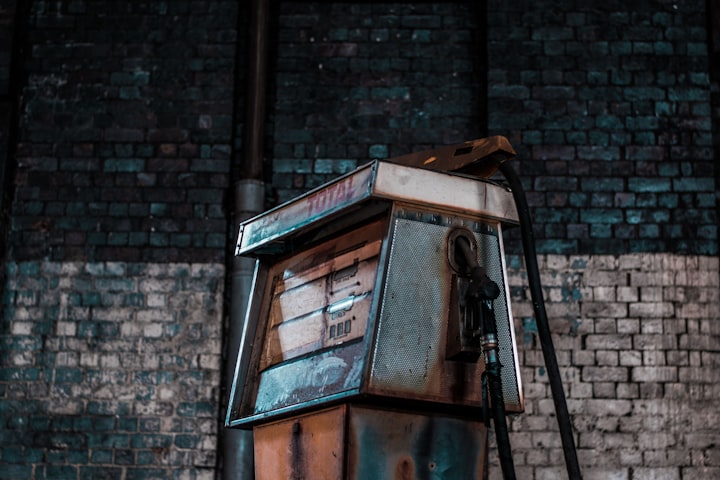Hands to Hold a Rake
Riley and Wyatt treated me like one of the boys, taught me how to fight my own battles by dragging me through the mud of theirs. Taught me what it meant to leave the farmhouse feeling like my teeth were about to fall out from the backside of Dad's hand--because after I turned eleven, they stopped taking the chance to step between me and the old man.

We were country kids, born and raised on the land and raised to respect it and the man at the head of our house even when he'd done nothing to earn that respect. I wore my older brothers' hand-me-downs, proud to display the stains they'd earned from blood and grass alike, and proud to wrap a rope through the belt-loops to make those Levi's fit around my too-small, too-feminine waist.
Riley and Wyatt treated me like one of the boys, taught me how to fight my own battles by dragging me through the mud of theirs. Taught me what it meant to leave the farmhouse feeling like my teeth were about to fall out from the backside of Dad's hand--because after I turned eleven, they stopped taking the chance to step between me and the old man.
"Y'gotta learn sometime, kid. Life ain't fair now and it's not gonna be later," Riley insisted while we sat up in the summer beams of the barn, our feet dangling down over haystacks.
We'd take the pickup into town on Tuesday afternoons to buy supplies, spend the evening eating chip truck fries and killing as much time as we could before driving back home through the night. Riley was seventeen at the time, Wyatt was coming up on his fourteenth birthday, and I was twelve.
It was July, the air was hot and heavy, and we pulled into the parking lot of a gas station that hadn't been in use for as long as any of us had been breathing. The stench of gasoline still clung to the atmosphere.
"Shane and Charlie said you can get in through the back window on the right," Wyatt announced proudly, "Said there's a whole stack of soda to take your pick from."
"Damn well better be orange soda," came Riley's quick, quipping tongue.
All I wanted was more time away from the farmhouse, so I piled out of the truck and followed the boys around to the back. Quiet, like I always was.
The glass of the window had already been broken, shards offering silent, sharp threats around the edges of the window frame. The denim of Wyatt's jeans caught one of them on the way in, snapping it off and sending it clambering to the concrete flooring within. Riley helped me up next, single-handedly offering the only stability I had the audacity to ask for. He followed up behind, his lanky frame landing quieter than either mine or Wyatt's had.
My eldest brother made a bee-line for the stacks of soda cans in the corner of the main room while Wyatt set off in the direction of the cashier's counter, his mind less inclined to stay on one track. I followed behind, slow and cautious, my fingertips running along the dust of shelves long-forgotten and long since raided for their best assets.
Down the only hall stood two doors, each of them painted bright red with scratches and scrapes and chips decorating constellations onto the makeshift canvases. One of them was an undesignated bathroom, and the other read "Staff Only" by way of handmade sign.
Wyatt toed at the second door, pushed his leather boot through the crack and forced it to open under pressure. Standing only six inches behind him, we both caught sight of the shock inside at the same time.
In the centre of the worn floor lay a body, face-up and arms in unnatural tangles at his sides - like pipe-cleaners after kindergarteners have had their way.
We'd spent our days up until then on a farm where the only difference between us and the pigs was that we had hands to hold a rake.
So when Riley tracked over behind us with a can of orange soda in hand and said, "Ain't nothing but a dead man," we all steeled our expressions even if we knew we'd never speak of that day again.
Someone had placed marigolds over his eyes, and we plucked them and pulled the petals off one by one, laughing through a chorus of "he loves me, he loves me nots" to mock the girls at school. And it didn't phase us that we'd taken from the dead man his last shred of human connection, his last symbol of ever having been known to anyone. We, in the naivety of innocence, misunderstood the sanctity of human life. We mistook his absence of breath as an invitation for disrespect.
Later, a news report swore up and down it'd been an overdose. They found the body with petals scattered like blood splatter all around, but nothing crimson in sight. They didn't have a clue how he'd ended up at the gas station, of all places. No one ever came to collect the man's belongings or claim his as a member of their family.
I dreamt once, about a little sister I don't know if he really had, who cried and cried because the marigolds had been taken off his eyes and shredded in her absence. I dreamt she'd put them there to protect him from seeing the darkness.
For years afterward, anytime I looked at Riley I had to wonder whether I'd do the same. Some nights, when he'd fall asleep on the living room couch, I'd find myself imagining those yellow flowers onto his face. I still don't think I've forgiven him for his calmness, or for the way he reached so eagerly for the tiny, plush petals. He'd started with the laughter and eased us into that sense of security in those moments after the discovery, and it changed something inside of me forever.
About the Creator
Tia Foisy
socialist. writer. cat mom.






Comments
There are no comments for this story
Be the first to respond and start the conversation.